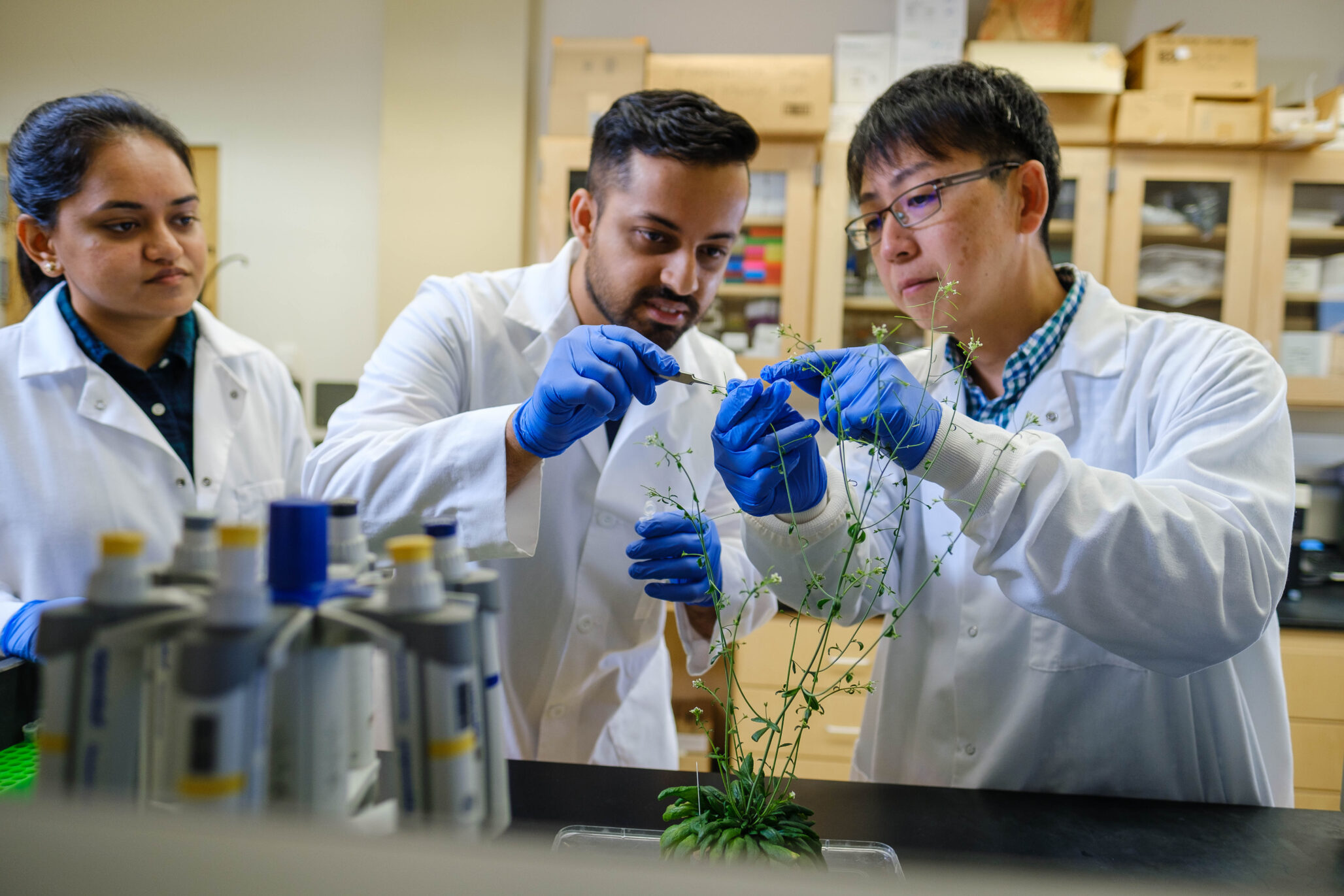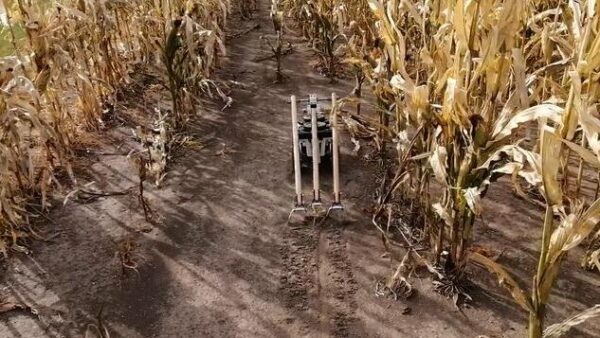A $2.1 million grant will help Iowa State University plant scientists to study how corn responds to environmental stress at the genetic level.
The three-year grant, awarded by the National Science Foundation, could set the stage for plant breeders to develop corn varieties that are more resilient to adverse environmental conditions, such as heat waves.
Stephen Howell, a Distinguished Professor of genetics, development and cell biology and the primary investigator on the project, said researchers at Iowa State, Michigan State and the University of North Carolina-Wilmington will try to build a better understanding of how corn plants deal with stress conditions that upset a delicate but vital process in plant cells called protein folding.
Protein folding is a process by which newly produced proteins acquire their shape and function inside a cell. The process occurs in every higher organism, and the success of the process is a matter of life or death in plant cells. For instance, an improperly folded protein may not be able to carry out its enzymatic function in plant metabolism or development.
Howell said prolonged exposure to environmental stress can disrupt protein folding in corn plants, causing the plants to produce misshapen proteins. The buildup of too many misshapen proteins sets off an alarm prompting the plant either to destroy the proteins or strengthen the genetic mechanisms involved in protein folding. Howell’s lab will work to identify the gene pathways that are activated when misshapen proteins begin to pile up.
“Too many misshapen proteins can be toxic to the plant,” Howell said. “Learning about the alarm system may help future plant breeders to tweak the plant’s response and build in better tolerance for stress.”
Widely grown and globally important crops like corn face a wide range of climatic and environmental changes in modern agriculture, making this research even more important, Howell said.
But the research, and similar efforts analyzing protein folding in other organisms, may have ramifications in medical science as well, he said. In humans, problems with protein folding lead to Parkinson’s, Alzheimer’s disease and a range of other neurodegenerative disorders.
Diane Bassham, a professor of genetics, development and cell biology and the Walter E. and Helen Parke Loomis Professor of Plant Physiology at Iowa State, is a coinvestigator on the project. Howell said collaboration with colleagues at Michigan State and UNC-Wilmington will require regular video conferences and occasional travel to allow the team to work together.













